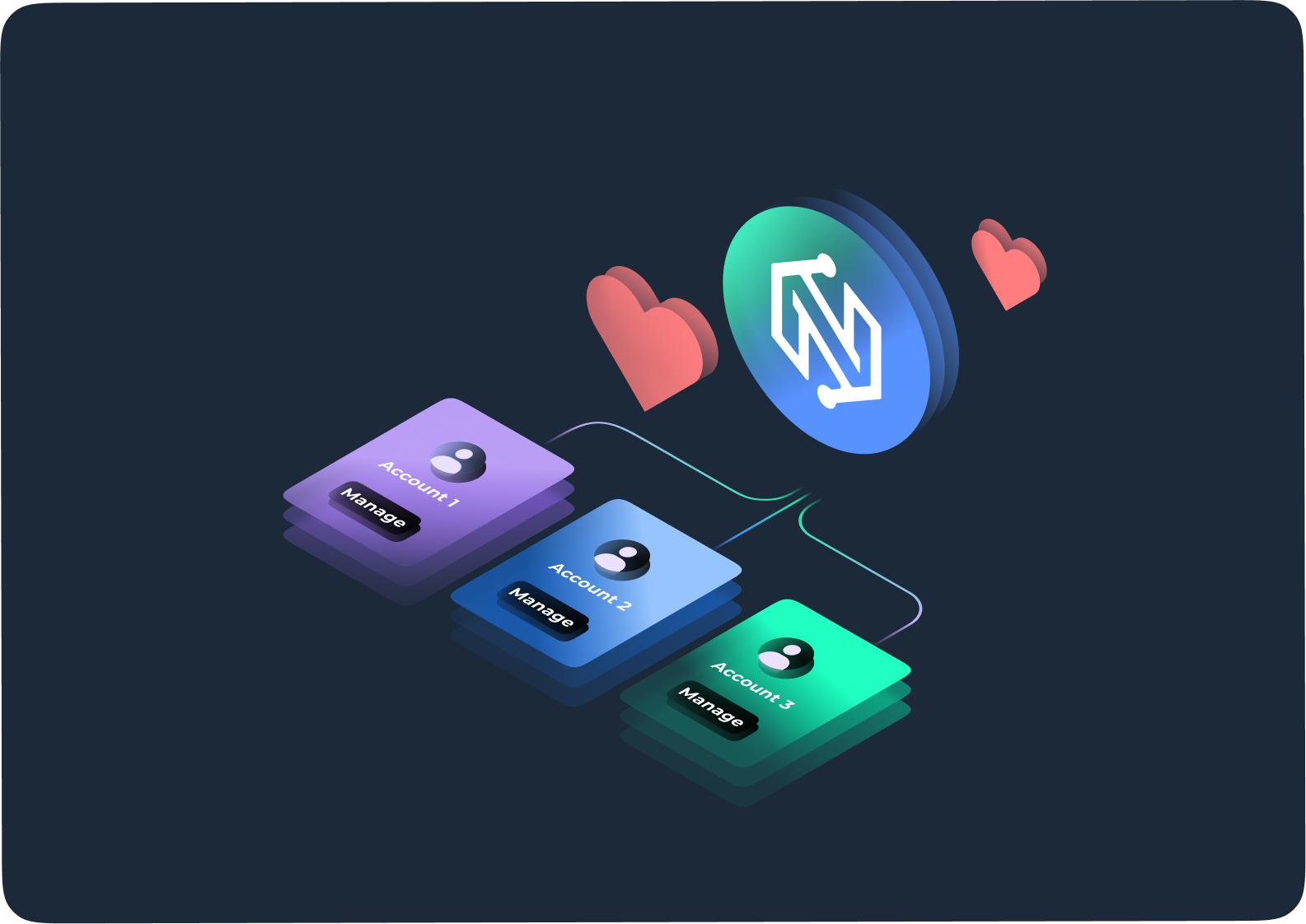In 2008, network security expert Gordon Lyon estimated that “hundreds of thousands” of open proxies were operating on the Internet. This indicates the widespread use of proxy technologies even at that time.
When it comes to choosing proxies, the debate between data center proxies vs residential proxies often arises. Both have their unique strengths, but understanding their differences is crucial for selecting the right solution.
Whether you’re a business looking to manage multiple accounts, scrape web data, or give ad compliance, proxies play an integral role in achieving success.
In this article, we’ll explore the key characteristics, benefits, and use cases of data center proxies vs residential proxies, highlighting why one might edge out the other depending on your needs.
What Are Proxies and Why Are They Used?
Proxies are not just tools for masking your IP address. They have evolved into essential resources for both individual and business needs in today’s internet-driven world.
They act as intermediaries between a user’s device and the internet and also secure privacy, security, and access to content that might otherwise be restricted.
For businesses, proxies allow the efficient management of multiple accounts, precise geo-targeting, and the collection of critical data without being flagged. For individuals, they make sure you have access to region-specific content while keeping personal information safe.
From securing your online presence to enabling large-scale operations like web scraping or ad verification, proxies bridge the gap between user demands and internet limitations.
Defining Data center Proxies
Datacenter proxies are created on cloud servers and aren’t tied to physical devices or ISPs. They operate solely from server infrastructures, making them fast and cost-effective.
Characteristics of Data center Proxies
- High speed: Datacenter proxies are known for their lightning-fast performance, making them ideal for high-efficiency activities.
- Affordability: Their lower cost makes them a popular choice for budget-conscious users.
- Easier to detect: Since they lack association with real ISPs, websites often identify and block them.
- Limited anonymity: Their detectability poses challenges for tasks requiring higher trust, like managing sensitive accounts.
While datacenter proxies are suitable for less sensitive tasks, their limitations in anonymity and geo-targeting can hinder their effectiveness for more complex use cases.
Defining Residential Proxies
Residential proxies, in contrast, use IP addresses assigned by real ISPs and are tied to physical devices such as home computers or mobile phones. This makes them appear as legitimate user connections, offering unparalleled anonymity and trustworthiness.
Characteristics of Residential Proxies
- Unmatched anonymity: Residential proxies mimic real users, making them nearly impossible to detect and block.
- Precise geo-targeting: With access to IPs from specific locations and ISPs, residential proxies allow businesses to reach targeted audiences effortlessly.
- Stability for sensitive tasks: They provide the reliability needed for long-term operations, such as managing multiple accounts or conducting ad verification.
- Higher costs: Their sourcing complexity and superior anonymity come at a premium.
For tasks requiring trust, security, and precise geo-targeting, residential proxies are a standout choice.
Data Center Proxies vs Residential Proxies: Key Differences
While data center and residential proxies share the same fundamental purpose of masking your IP, their differences lie in the details of their functionality and applicability. To dig deeper:
Performance and Speed
Speed is a defining trait of datacenter proxies. Their server-based infrastructure gives high bandwidth and fast response times, making them ideal for operations like testing, where throughput matters most.
However, residential proxies provide stable, consistent connections that are less prone to interruptions, which is important for tasks like managing sensitive accounts or conducting prolonged data scraping.
Anonymity and Detection
In today’s internet environment, where websites employ increasingly sophisticated detection systems, anonymity is no longer optional – it’s essential.
Residential proxies excel here, as their ISP-backed IPs mimic real users, blending perfectly into legitimate traffic. This makes them virtually undetectable, whereas datacenter proxies, often flagged as server-based, carry a higher risk of being blocked or flagged.
Cost Considerations
Datacenter proxies are the budget-friendly option, ideal for operations that don’t demand high anonymity. Residential proxies, while more expensive, justify their cost for sensitive, trust-dependent activities, offering superior performance in avoiding detection and warranting successful operations.
Use Cases for Data Center Proxies vs Residential Proxies
Different proxies suit different purposes, but in many scenarios, residential proxies offer distinct advantages due to their legitimacy and trustworthiness.
Let’s explore the cases individually:
When to Use Datacenter Proxies?
Datacenter proxies shine in scenarios where speed and affordability are top priorities. For example, tech startups often use datacenter proxies to test website functionality across regions quickly.
Similarly, businesses conducting bulk scraping tasks find these proxies to be a cost-efficient option due to their ability to handle high-volume requests without breaking the bank.
To sum up:
- Bulk web scraping: For large-scale data scraping tasks where speed is crucial, datacenter proxies are a cost-effective solution.
- Testing and development: Developers use datacenter proxies to test websites or applications in various regions.
- Unrestricted content access: Datacenter proxies work well for bypassing basic geo-restrictions, such as streaming services.
When to Use Residential Proxies?
Residential proxies are essential for activities requiring trust and authenticity. In the e-commerce industry, sellers use residential proxies to manage multiple accounts on platforms like Amazon or eBay without raising suspicion.
Likewise, digital marketers rely on residential proxies, including static residential proxies for consistent identity, and rotating residential proxies for dynamic tasks, to make sure that campaigns are displayed accurately to their target audience. Their legitimacy and reliability make them the preferred choice for sensitive operations.
So, to put it all shortly, residential proxies are great for:
- Social media management: Residential proxies make the management of multiple social media accounts easier.
- E-commerce operations: Businesses rely on residential proxies for price monitoring, ad verification, and managing multiple seller accounts.
- Ad compliance: Residential proxies are the go-to for verifying ad placement and making sure the targeting across regions is accurate.
Use Residential Proxies From NodeMaven
When it comes to proxies, quality and reliability are paramount. NodeMaven offers top-tier residential proxies that cater to diverse business needs, granting unmatched performance and security.
- Vast residential IP pool: Access millions of premium residential IPs that are ISP-backed and virtually undetectable.
- Advanced geo-targeting: Target specific locations and ISPs with precision to achieve optimal results.
- Scalable solutions: Whether you’re a small business or a large enterprise, NodeMaven’s residential proxies can scale with your needs.
- Exceptional support: Our dedicated team is available 24/7 to assist you in maximizing your proxy operations.
Ready to elevate your proxy game? Explore NodeMaven’s premium residential proxies today and unlock unparalleled success for your business!


